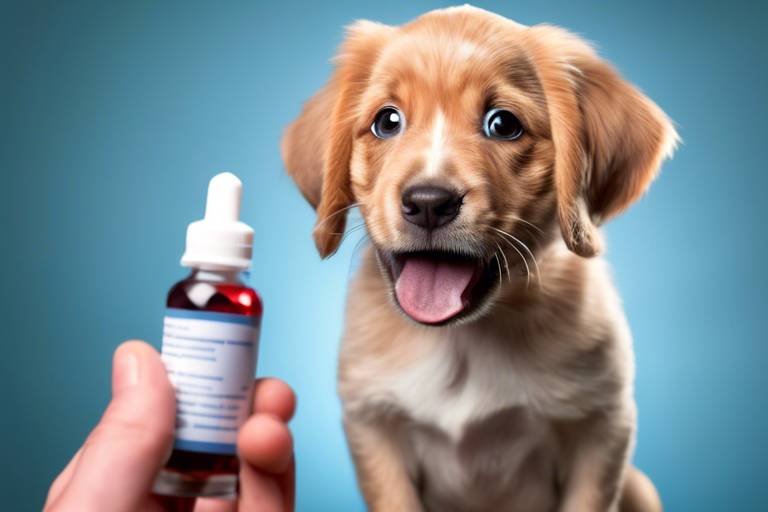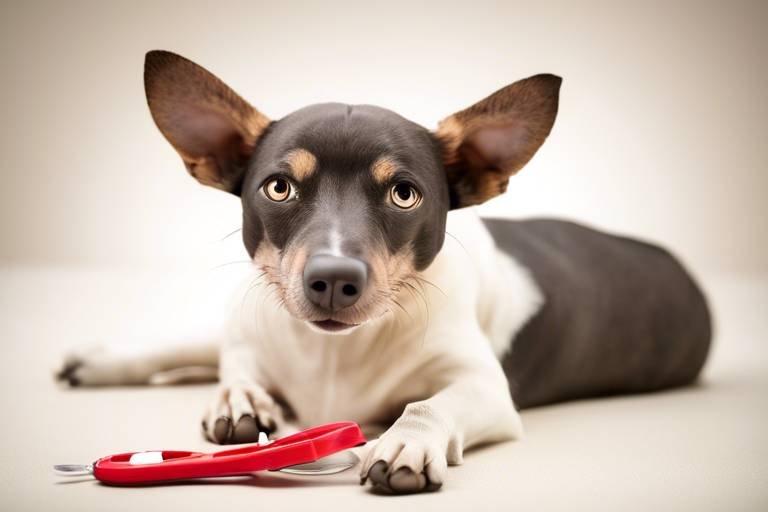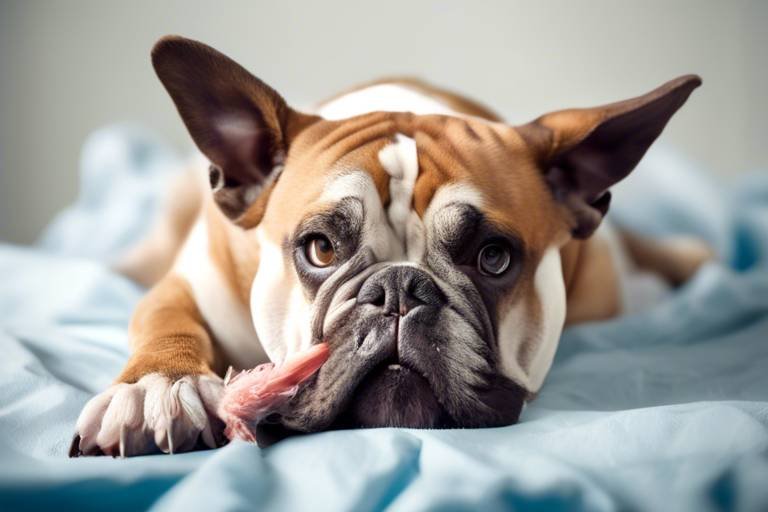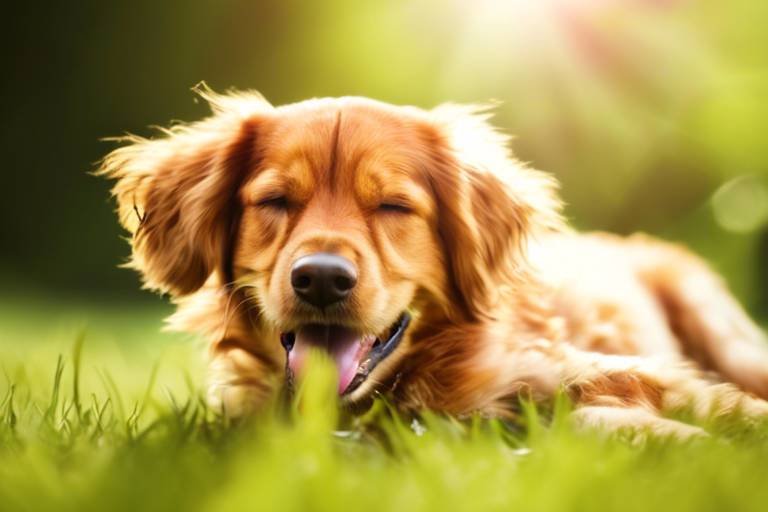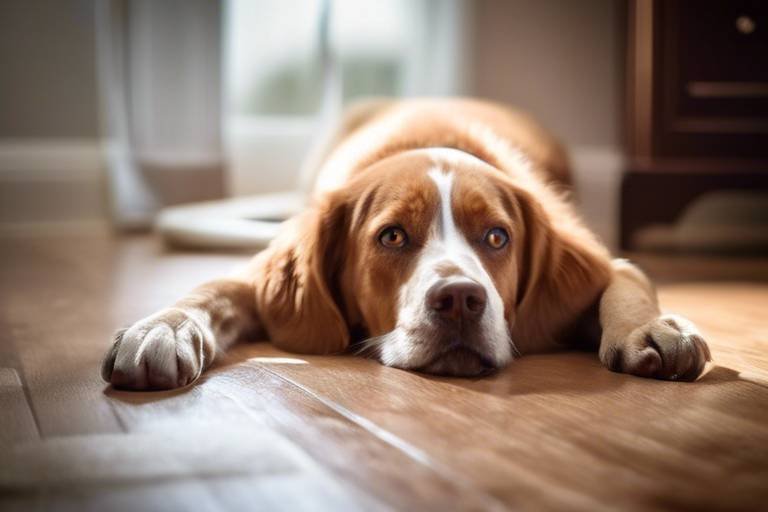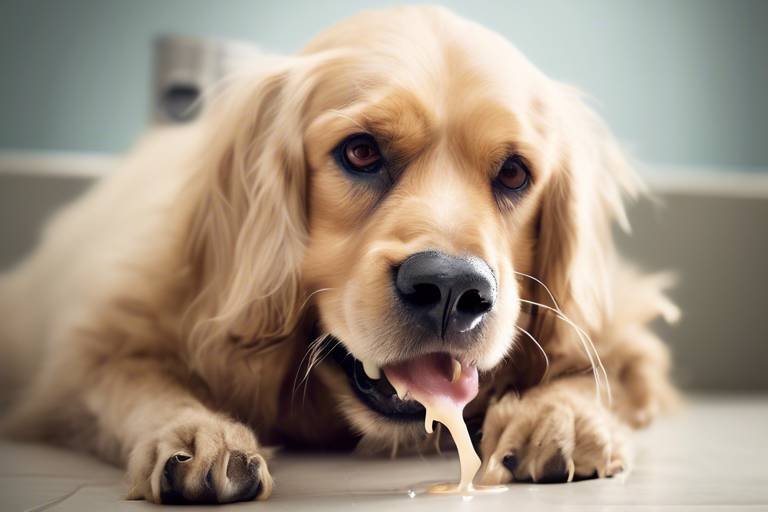What to Do If Your Pet Has a Reaction to a Vaccine
Vaccination is a crucial part of keeping our beloved pets healthy and protected against various diseases. However, as with any medical procedure, there's a chance that your furry friend might experience a reaction to a vaccine. While most reactions are mild and resolve on their own, it's essential for pet owners to be informed and prepared. This article provides essential guidance for pet owners on recognizing and responding to vaccine reactions, ensuring the health and safety of your furry companions during their vaccination journey.
Vaccine reactions can vary in severity, ranging from mild discomfort to severe allergic responses. It's vital for pet owners to understand what these reactions might look like. Common symptoms include:
- Fever: A slight increase in body temperature is common.
- Loss of Appetite: Your pet may not feel like eating after vaccination.
- Fatigue: A bit of lethargy is normal, but it should not last long.
By monitoring your pet closely after vaccination, you can identify potential issues early. Remember, being vigilant can make a huge difference in your pet's health.
If you suspect your pet is having a reaction to a vaccine, quick action is crucial. First, stay calm. Your pet can pick up on your anxiety, which may worsen their stress. Assess the situation and take the following steps:
- Check for visible symptoms, such as swelling or hives.
- Monitor your pet’s breathing and energy levels.
- If symptoms worsen, do not hesitate to contact your veterinarian.
Some reactions can be severe and require urgent attention. It's essential to be aware of critical signs that indicate your pet needs immediate veterinary care. Look out for:
- Swelling and Hives: These can occur around the face, ears, or other areas of the body.
- Difficulty Breathing: Any sign of respiratory distress must be treated as an emergency.
Swelling or hives can be alarming for pet owners. These symptoms often appear shortly after vaccination. If you notice your pet developing welts or swelling, try to keep them calm and avoid any additional stress. Applying a cool compress to the affected area can help alleviate discomfort while you prepare to seek veterinary assistance.
Difficulty breathing is a serious concern. If your pet is panting excessively, has a blue-tinged tongue, or seems to be struggling for air, it's crucial to act quickly. Call your veterinarian immediately or head to the nearest emergency clinic. Remember, every second counts!
Not all vaccine reactions are severe. In fact, many pets experience mild symptoms that can be managed at home. If your pet shows signs of discomfort, here are some tips to help them feel better:
- Provide a quiet, comfortable space for your pet to rest.
- Encourage hydration by offering fresh water.
- Monitor their behavior closely for any changes.
If symptoms persist or worsen, don’t hesitate to consult your veterinarian for further advice.
Knowing when to reach out to your veterinarian is essential for your pet's well-being. If you notice any of the following scenarios, it’s best to give your vet a call:
- Persistent vomiting or diarrhea.
- Signs of pain or discomfort that don’t improve.
- Any severe allergic reactions as discussed earlier.
Follow-up appointments can be vital after a vaccine reaction. These visits allow your veterinarian to monitor your pet’s recovery and address any lingering concerns. Make sure to keep these appointments and communicate openly about any symptoms your pet may be experiencing.
Keeping a record of vaccine reactions can be beneficial for both you and your veterinarian. Documenting symptoms, their duration, and any treatments administered can help in future vaccinations. This information can guide your vet in choosing the best vaccination schedule and options for your pet.
Q: What should I do if my pet has a mild reaction to a vaccine?
A: Monitor your pet closely, provide a comfortable environment, and consult your veterinarian if symptoms persist.
Q: Can I prevent vaccine reactions?
A: While reactions can't always be prevented, discussing your pet's medical history with your veterinarian can help identify any potential risks.
Q: How long should I monitor my pet after vaccination?
A: It's a good idea to keep an eye on your pet for at least 24 hours post-vaccination.
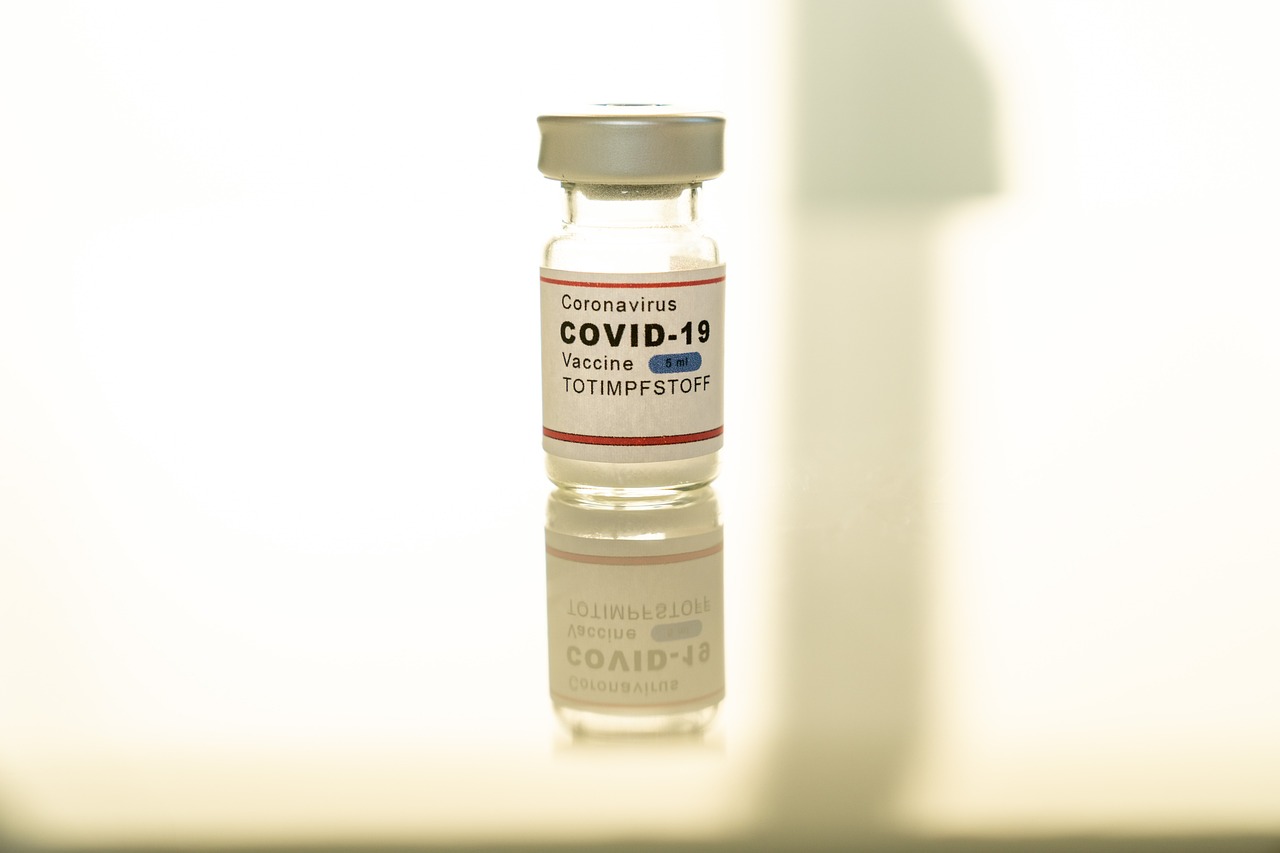
Understanding Vaccine Reactions
When it comes to our beloved pets, vaccinations are a vital part of keeping them healthy and protected from various diseases. However, just like humans, pets can have reactions to vaccines. Understanding these reactions is crucial for pet owners to ensure their furry friends remain safe and comfortable during their vaccination journey. Vaccine reactions can range from mild to severe, and recognizing the signs early can make a significant difference in your pet's well-being.
Typically, vaccine reactions can be categorized into two main types: mild reactions and severe reactions. Mild reactions might include symptoms such as slight lethargy, a low-grade fever, or a small lump at the injection site. While these symptoms can be concerning, they are usually temporary and resolve on their own within a day or two. However, it’s essential to monitor your pet closely during this time. On the other hand, severe reactions, although less common, can occur and may require immediate attention.
Common symptoms of mild vaccine reactions include:
- Lethargy: Your pet may seem a bit more tired than usual.
- Low-Grade Fever: A slight increase in body temperature may be noted.
- Localized Swelling: A small lump at the injection site can develop.
Recognizing these mild symptoms can help you determine if your pet is simply having a typical response to the vaccine or if something more serious is occurring. It’s always a good idea to keep an eye on your pet’s behavior and to trust your instincts as a pet owner. If you notice any unusual changes, don't hesitate to consult your veterinarian.
Severe reactions, although rare, can manifest in various alarming ways. It's essential to be aware of these symptoms, as they require immediate veterinary intervention. Some critical signs to watch for include:
- Severe Swelling: Noticeable swelling around the face, neck, or at the injection site.
- Difficulty Breathing: Rapid or labored breathing can indicate a serious reaction.
- Vomiting or Diarrhea: Gastrointestinal distress following vaccination.
- Collapse: Sudden weakness or fainting can be a sign of a severe reaction.
In summary, understanding vaccine reactions is an essential part of being a responsible pet owner. By being informed about the potential symptoms and knowing when to seek help, you can ensure that your pet receives the best possible care during their vaccination process. Always remember, when in doubt, it’s better to reach out to your veterinarian for guidance.

Immediate Actions to Take
When your beloved pet receives a vaccine, you might feel a mix of excitement and apprehension. Vaccination is a crucial step in keeping your furry friend healthy, but sometimes, things can take an unexpected turn. If you suspect your pet is having a reaction to a vaccine, it’s essential to act swiftly. Remember, your pet relies on you to be their advocate in moments of uncertainty. So, what should you do? Let’s break it down.
First and foremost, stay calm. Your pet can pick up on your emotions, and panicking might only add to their distress. Take a deep breath and assess the situation. Look for any visible signs of discomfort or distress. Are they whining, scratching at their skin, or acting unusually lethargic? These could be indicators of a reaction. If you observe any concerning symptoms, it’s time to take action.
Here’s a quick guide on what to do next:
- Check for Symptoms: Monitor your pet closely for any signs of a reaction. Common symptoms can include swelling, hives, vomiting, diarrhea, or lethargy. Keep an eye out for severe symptoms like difficulty breathing or excessive swelling.
- Contact Your Veterinarian: If you notice any concerning symptoms, call your veterinarian immediately. They can provide guidance on whether your pet needs to be seen right away or if it’s safe to manage the situation at home.
- Keep Your Pet Comfortable: While you’re waiting for veterinary advice, ensure your pet is in a calm and comfortable environment. Offer them a cozy place to rest, away from noise and distractions.
In the case of severe symptoms, such as difficulty breathing or extreme swelling, do not hesitate to seek emergency veterinary care. Time is of the essence, and your quick response could make a significant difference in your pet's recovery.
After you've taken the necessary immediate actions, keep a close eye on your pet’s behavior. Sometimes, reactions can evolve over time. If your pet seems to improve but then starts showing signs of distress again, don’t hesitate to reach out to your veterinarian for further advice.
Lastly, remember that documenting your pet's reaction can be incredibly helpful. Take notes on what symptoms you observed, when they occurred, and any actions you took. This information can assist your veterinarian in understanding your pet's condition and making informed decisions for future vaccinations.
Recognizing Severe Symptoms
When it comes to your pet's health, being vigilant is key, especially after they’ve received a vaccine. While most pets handle vaccinations like champs, some might show signs of a severe reaction that can be alarming. It's crucial to be aware of these symptoms, as they can indicate a serious issue requiring immediate veterinary attention. So, what should you be on the lookout for? Let's dive into some critical signs that signal your furry friend may need urgent care.
First and foremost, swelling is a common reaction that can occur at the injection site or even more broadly throughout the body. If you notice any unusual lumps or swelling, particularly around the face, ears, or eyes, it could indicate an allergic reaction. Hives, which look like raised bumps on the skin, can also appear. These symptoms are often accompanied by discomfort, and your pet may be restless or agitated. If you see these signs, don’t hesitate—contact your veterinarian immediately.
Another severe symptom to watch for is difficulty breathing. This can manifest as rapid breathing, wheezing, or even gasping for air. Imagine how terrifying it must be for your pet to struggle for breath! If you notice your pet panting excessively or exhibiting unusual breathing patterns, it's imperative to act fast. Call your vet or head to the nearest emergency animal clinic without delay. Remember, time is of the essence when it comes to respiratory distress.
In addition to swelling and breathing difficulties, other symptoms can also indicate a severe reaction. These may include:
- Vomiting or diarrhea: This can lead to dehydration, so keep an eye on your pet's hydration levels.
- Severe lethargy: If your pet seems unusually tired or unresponsive, it could be a sign of something serious.
- Seizures: If your pet experiences convulsions, this is an emergency situation that requires immediate veterinary intervention.
Recognizing these severe symptoms can be the difference between a minor scare and a life-threatening situation. Always trust your instincts—if something feels off with your pet after their vaccination, don’t wait it out. Better safe than sorry!
Swelling and Hives
When your furry friend receives a vaccine, the last thing you want to see is swelling or hives popping up on their skin. These reactions can be alarming, but understanding what they are and how to respond can make a world of difference. Swelling, also known as edema, often occurs at the injection site, but it can also appear in other areas of the body. Hives, or urticaria, manifest as raised, itchy welts on the skin. Both symptoms can indicate an allergic reaction, and while they might not always signal a severe emergency, they do require your attention.
Recognizing these symptoms early can help you act swiftly. If you notice any swelling or hives, take a moment to assess the situation. Here’s what you should look for:
- Swelling that is localized to the injection site or spreading to other areas.
- Redness or warmth around the swollen area.
- Raised bumps or welts on the skin that may be itchy or painful.
If you observe these symptoms, your first step should be to keep your pet calm. Stress can exacerbate their condition, so try to create a soothing environment. You might want to gently apply a cool compress to the affected area to alleviate discomfort. However, it's essential to remember that while these steps can help, they are not a substitute for professional veterinary care. If the swelling or hives persist or worsen, don't hesitate to contact your veterinarian immediately.
In some cases, swelling and hives can progress to more severe symptoms, such as difficulty breathing or anaphylaxis. Therefore, it’s vital to monitor your pet closely after vaccination. If you notice any signs of distress, such as excessive panting, lethargy, or swelling of the face or throat, seek emergency veterinary assistance right away. Your quick response could be crucial in ensuring your pet’s safety and well-being.
Difficulty Breathing
When it comes to our beloved pets, is one of those red flags that should never be ignored. Imagine being unable to catch your breath; it’s a scary thought, isn’t it? Our furry friends can experience respiratory distress as a reaction to vaccines, and recognizing this early can be a lifesaver. So, what should you look for? Signs of breathing difficulties can include rapid panting, open-mouth breathing, or even a wheezing sound. If you notice any of these symptoms, it’s crucial to act quickly.
First, try to remain calm. Pets can pick up on our anxiety, and your soothing presence can help them feel more secure. If your pet is in distress, ensure they are in a well-ventilated area. Fresh air can make a significant difference. If the symptoms persist or worsen, don’t hesitate to seek emergency veterinary care. Remember, breathing issues can escalate quickly, and it’s always better to be safe than sorry.
Here’s a quick checklist to help you assess the situation:
- Is your pet panting excessively?
- Are they making unusual noises while breathing?
- Do they seem lethargic or unresponsive?
- Is there a change in their gum color (e.g., blue or pale)?
If you observe any of these signs, it’s time to act. Call your veterinarian or an emergency animal clinic immediately. They can guide you on the next steps and prepare for your arrival. It’s also essential to provide them with as much information as possible, including the type of vaccine administered and the timing of the reaction. This information can be critical in determining the best course of action for your pet.
In summary, recognizing the signs of in your pet is vital. By staying vigilant and knowing how to respond, you can ensure that your furry companion receives the care they need in a timely manner. Remember, your pet relies on you to be their advocate, especially during moments of distress.
- What should I do if my pet has a severe reaction to a vaccine?
Immediately contact your veterinarian or an emergency animal clinic. - How can I tell if my pet is having a mild reaction?
Mild reactions might include slight lethargy or a small bump at the injection site. Monitor your pet closely. - Are certain breeds more prone to vaccine reactions?
Yes, some breeds may have a higher likelihood of reactions. Always discuss your pet's specific risks with your vet. - Can I give my pet medication for a reaction at home?
Never administer medication without consulting your veterinarian first.
Managing Mild Reactions at Home
When your furry friend receives a vaccine, it's not uncommon for them to experience some mild reactions. These can include symptoms like a slight fever, reduced appetite, or a bit of lethargy. While these reactions can be concerning, they are often part of the body’s natural response to building immunity. As a pet owner, it's essential to stay calm and know how to manage these mild reactions at home effectively.
One of the first things you can do is to monitor your pet closely. Keep an eye on their behavior and note any changes. If your dog seems a little less energetic than usual, or if your cat is hiding away, don’t panic just yet. It’s crucial to give them some time to rest. Just like us, pets need to recharge after their bodies have worked hard to respond to the vaccine.
In addition to monitoring, providing a comfortable environment is key. Make sure your pet has a cozy spot to relax, away from noise and distractions. You might want to set up their favorite blanket or bed in a quiet corner where they can feel safe and secure. This simple act can go a long way in helping them feel better.
Hydration is another critical aspect to consider. Ensure your pet has access to fresh water at all times. If they seem reluctant to drink, try offering ice cubes or ice chips, which can be more enticing and also help cool them down if they have a slight fever. If your pet isn’t eating, don’t force them, but you might want to tempt them with some of their favorite treats or a bit of wet food to encourage them to eat.
It's also a good idea to keep a close watch on their temperature. A normal temperature for pets typically ranges between 100.5°F to 102.5°F. If you notice a significant increase, it could indicate a reaction that needs attention. You can use a digital thermometer designed for pets to check their temperature comfortably.
Should you notice any of the following mild symptoms, here are some home remedies you can try:
- Low-Grade Fever: A lukewarm bath can help bring their temperature down.
- Reduced Appetite: Warm up their food slightly to enhance the aroma and make it more appealing.
- Lethargy: Encourage gentle play or short walks to stimulate them, but don't overdo it.
Remember, while these tips can help manage mild reactions at home, it's essential to keep your veterinarian informed. If symptoms persist for more than 24 hours or worsen, don’t hesitate to reach out for professional advice. Your veterinarian knows your pet best and can provide tailored recommendations based on their health history.
In conclusion, managing mild reactions at home can be a straightforward process when you know what to do. By providing comfort, monitoring their condition, and knowing when to seek help, you can ensure your pet recovers quickly and comfortably after their vaccination.
Q: What are common mild reactions to vaccines in pets?
A: Common mild reactions include slight fever, lethargy, reduced appetite, and localized swelling at the injection site.
Q: How long do mild reactions typically last?
A: Most mild reactions resolve within 24 to 48 hours. If symptoms persist, consult your veterinarian.
Q: Should I give my pet medication for mild reactions?
A: Always consult your veterinarian before giving any medication to your pet. They can recommend appropriate treatments based on your pet's specific situation.
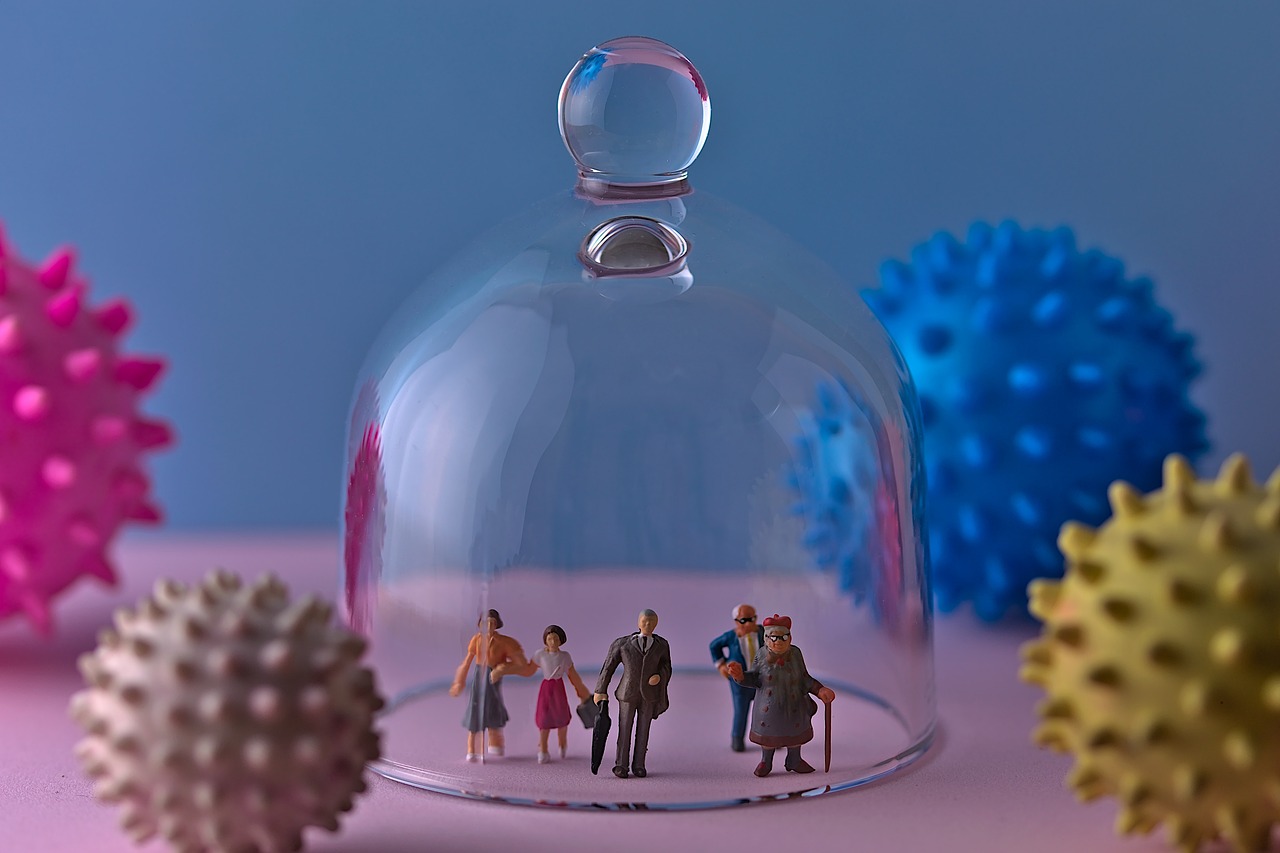
When to Contact Your Veterinarian
Knowing when to reach out to your veterinarian is essential for your pet's health, especially after receiving a vaccine. While some reactions may be mild and manageable at home, others can escalate quickly and require professional intervention. So, how do you determine the right moment to pick up that phone and call your vet? It's all about being vigilant and informed. Here are some scenarios that should raise a red flag:
- Persistent Vomiting or Diarrhea: If your pet is experiencing these symptoms for more than a few hours post-vaccination, it’s time to consult your veterinarian.
- Unusual Lethargy: While it's normal for pets to be a bit tired after a vaccine, excessive lethargy that lasts more than 24 hours is concerning.
- Loss of Appetite: If your furry friend refuses to eat for more than a day, this could be a sign of a more serious reaction.
- Behavioral Changes: Sudden aggression, fearfulness, or any drastic change in behavior should be noted and discussed with your vet.
It's important to remember that your veterinarian is your partner in your pet's health. If something feels off, don't hesitate to reach out. They can provide guidance and reassurance, helping you decide the best course of action. Additionally, they can advise you on whether your pet needs to be seen immediately or if it can wait for a scheduled appointment.
Follow-up appointments can be vital after a vaccine reaction. These visits allow your veterinarian to monitor your pet’s recovery and address any lingering concerns. During these appointments, your vet may conduct a thorough examination and ask detailed questions about your pet's condition. This not only aids in understanding the reaction but also helps in planning future vaccinations. Remember, every pet is different, and understanding your pet's unique response is key to ensuring their long-term health.
Keeping a record of vaccine reactions can be beneficial for both you and your veterinarian. Documenting symptoms and their duration can provide valuable insight during follow-up visits. Consider maintaining a simple log that includes:
| Date | Vaccine Administered | Symptoms Observed | Duration | Veterinarian Contacted |
|---|---|---|---|---|
| MM/DD/YYYY | Rabies | Swelling, Lethargy | 24 hours | Yes |
| MM/DD/YYYY | Distemper | Vomiting | 6 hours | No |
This log can help both you and your veterinarian make informed decisions about future vaccinations and any necessary precautions. By keeping track of your pet's reactions, you contribute to a safer vaccination experience for your beloved companion.
Q1: What are the most common vaccine reactions in pets?
A1: Common vaccine reactions can include mild lethargy, slight swelling at the injection site, or a low-grade fever. These are generally not serious and resolve on their own.
Q2: How long after vaccination should I monitor my pet for reactions?
A2: It's advisable to monitor your pet for at least 24 to 48 hours following vaccination, as reactions can sometimes be delayed.
Q3: Can I give my pet medication for mild reactions?
A3: Always consult your veterinarian before administering any medication. They can recommend safe options if necessary.
Q4: What should I do if my pet has a severe reaction?
A4: If you notice severe symptoms such as difficulty breathing or swelling, seek emergency veterinary care immediately.
Follow-Up Appointments
After your pet experiences a vaccine reaction, can be vital for their recovery and well-being. These visits allow your veterinarian to monitor your pet's health and ensure that any lingering issues are addressed. It's essential to schedule these appointments promptly, as they provide an opportunity to assess your pet's overall condition and discuss any concerns you may have.
During the follow-up, your veterinarian will likely conduct a thorough examination. They may check for any signs of ongoing reactions, such as swelling, lethargy, or changes in appetite. This is also the perfect time to discuss any symptoms you observed at home, as this information can be crucial for your vet to determine the next steps in your pet's care.
Additionally, follow-up appointments serve as a platform to discuss your pet's vaccination schedule. If your pet had a reaction, your veterinarian might recommend adjusting future vaccinations or opting for alternative vaccines. It's important to keep an open dialogue with your vet during these visits, as they can provide tailored advice based on your pet's specific needs.
In preparation for your follow-up appointment, consider keeping a detailed record of your pet's symptoms and behavior. This can include:
- Date and time of the reaction
- Specific symptoms observed
- Duration of symptoms
- Any home treatments administered
Having this information readily available can help your veterinarian make informed decisions about your pet's care. Remember, your pet's health is a partnership between you and your veterinarian, and your insights are invaluable.
Q: How soon should I schedule a follow-up appointment after a vaccine reaction?
A: It's best to schedule a follow-up appointment within a few days of the reaction to ensure your pet's health is being monitored closely.
Q: What if my pet seems fine after a vaccine reaction?
A: Even if your pet appears to be fine, it's still a good idea to have a follow-up appointment. Some reactions can have delayed effects, and your veterinarian can provide peace of mind.
Q: Are there any specific questions I should ask during the follow-up?
A: Yes! Ask about your pet's vaccination schedule, any potential long-term effects of the reaction, and what signs you should watch for in the future.
Documenting Reactions
When your furry friend experiences a reaction to a vaccine, documenting the details can be incredibly beneficial for both you and your veterinarian. This process not only helps in understanding how your pet responds to vaccinations but also assists in making informed decisions for future immunizations. So, how do you go about documenting these reactions effectively? Let's dive into the essentials.
First and foremost, keep a detailed record of any symptoms your pet exhibits after vaccination. This includes noting the time of the vaccine, the type of vaccine administered, and any immediate reactions observed. For instance, if your pet develops hives or shows signs of lethargy, jot down the exact time these symptoms appeared. This timeline can be crucial for your vet to determine if the reaction is directly related to the vaccine.
Additionally, consider creating a simple table to organize this information. Here’s a quick example of how you might structure it:
| Date | Vaccine Type | Symptoms Observed | Duration of Symptoms | Actions Taken |
|---|---|---|---|---|
| MM/DD/YYYY | Rabies | Swelling at injection site, mild lethargy | 2 hours | Applied a cold compress, monitored closely |
| MM/DD/YYYY | Distemper | Hives, scratching | 30 minutes | Contacted vet, administered antihistamine |
In addition to the table, maintaining a symptom diary can also be helpful. This diary could include:
- Notes on your pet's behavior and appetite
- Any changes in their normal routine
- Follow-up care or vet visits
By keeping such detailed records, you’re not only preparing yourself for any necessary follow-up appointments but also providing your veterinarian with valuable insights that can guide their recommendations. Remember, the more information you can provide, the better equipped your vet will be to ensure your pet's health and safety during their vaccination journey.
Lastly, don’t hesitate to share your documentation with your veterinarian during check-ups or follow-up appointments. This collaborative approach can lead to better care and understanding of your pet’s unique health needs. After all, when it comes to our beloved pets, knowledge is power!
- What are the most common vaccine reactions in pets? Common reactions include mild swelling at the injection site, lethargy, and decreased appetite.
- How long after vaccination should I monitor my pet? It’s advisable to monitor your pet for at least 24 hours post-vaccination for any adverse reactions.
- What should I do if my pet has a severe reaction? Seek emergency veterinary care immediately if you notice severe symptoms like difficulty breathing or swelling of the face.
- Can I prevent vaccine reactions? While not all reactions can be prevented, discussing your pet’s medical history with your veterinarian can help minimize risks.
Frequently Asked Questions
- What are the common signs of a vaccine reaction in pets?
Common signs of a vaccine reaction in pets can include mild symptoms such as lethargy, slight fever, or a decrease in appetite. More severe reactions may present as swelling, hives, or difficulty breathing. It's essential to monitor your pet closely after vaccination to catch any reactions early.
- What should I do if my pet shows severe symptoms after vaccination?
If your pet exhibits severe symptoms like swelling, hives, or difficulty breathing, you should seek emergency veterinary care immediately. These reactions can be life-threatening, and timely intervention is crucial for your pet's safety.
- Can I manage mild vaccine reactions at home?
Yes, mild reactions can often be managed at home. Providing a quiet, comfortable space for your pet, along with plenty of fresh water, can help them recover. However, if symptoms persist or worsen, it's important to consult your veterinarian for further guidance.
- When should I contact my veterinarian after my pet's vaccination?
You should contact your veterinarian if your pet shows any unusual behavior, such as excessive lethargy, vomiting, or if mild symptoms do not improve within a few days. It's better to be safe and get professional advice when in doubt.
- How can I document my pet's vaccine reactions?
Keeping a detailed record of your pet's vaccine reactions is beneficial. Note the date of vaccination, any symptoms observed, their severity, and how long they lasted. This information can be invaluable for your veterinarian in future visits.
- Are follow-up appointments necessary after a vaccine reaction?
Yes, follow-up appointments can be vital to ensure your pet is recovering well and to address any lingering concerns. Your veterinarian may want to monitor your pet's health more closely after a reaction to ensure everything is back to normal.

